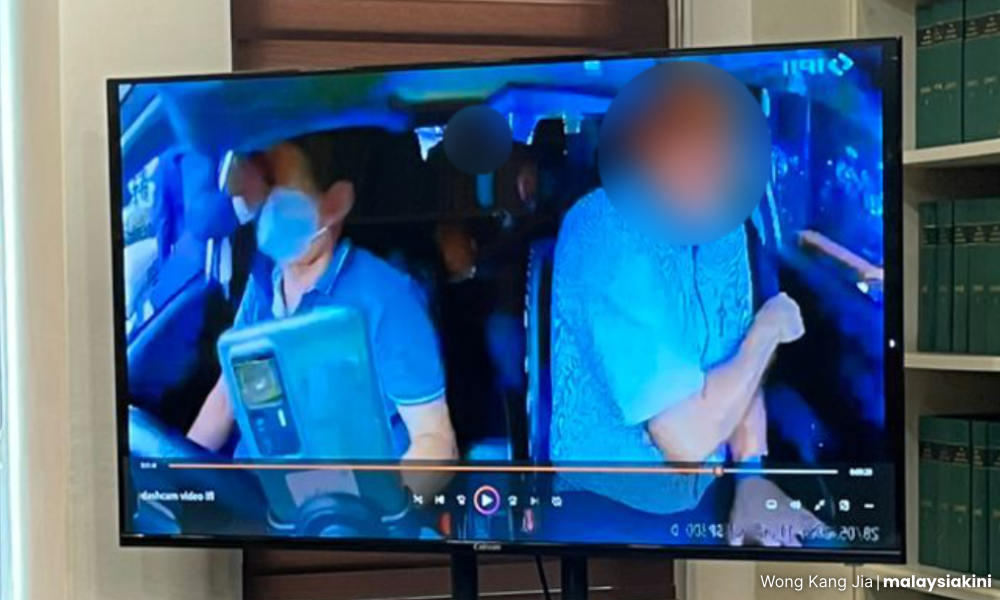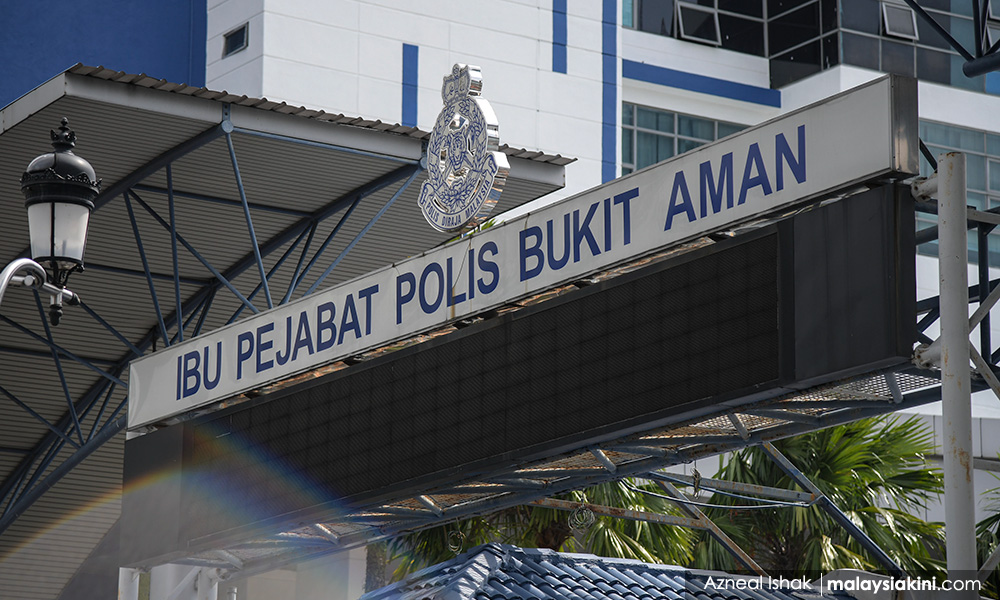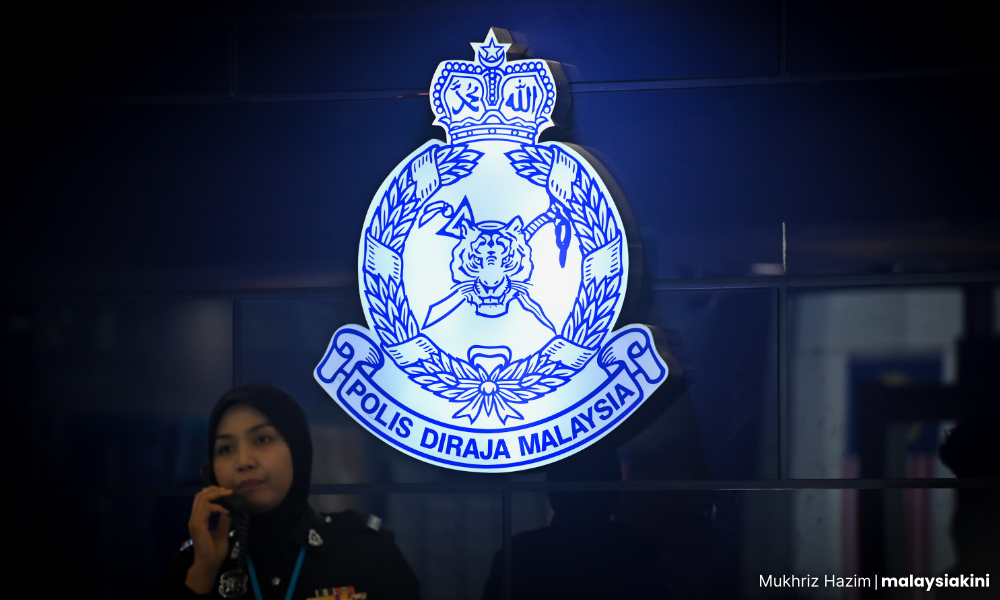Justice should be blind but never deaf and the more we dig deeper into the assault of the deaf e-hailing driver, Ong Ing Keong, the more we uncover a tangled web of lies and deceit.
The unexplained lengthy delays have undoubtedly led us to question the integrity of our legal system.
On May 28, 46-year-old Ong had gone to the St Regis Hotel, in Kuala Lumpur, to pick up a passenger when a police officer, Muhammad Taufik Ismail, punched him in the face for failing to understand his (Taufik’s) hand signal to move his Toyota Vios.
Taufik was part of the police escort team for the Regent of Johor, Tunku Ismail Sultan Ibrahim.
As a conscientious e-hailing driver, Ong’s concern was for his passenger who had only just entered his car having come out of the hotel lobby. His client’s luggage had been loaded into the boot, and he was waiting for it to be closed shut by the hotel staff before he could drive off.
Why was it necessary for Taufik to punch Ong? What message does it send to the public about the thuggish police escort?
Pushing people around
Taufik’s arrogance lends credence to the common belief that putting an insignificant and insecure person in uniform makes him think he can push people around.
Had the case been brought to court, the royal family would have inadvertently been subjected to the negative limelight.

However, it’s very disingenuous to warn the rakyat not to drag the royals into the glare of publicity. Allegations of brutality by police escorts to the VVIPs have happened before and Taufik’s assault is not the first case to be reported.
There are many unanswered questions regarding Ong’s assault. The lengthy delay, the Attorney-General’s Chambers dragging its feet, summoning Ong several times to the police station, the subtle threats, and the failure to engage a sign-language interpreter.
If not for Ong’s courage to demand justice for himself, members of the deaf community, and the support of the general public, would his case have been pursued at all?
Disabled people are often treated with contempt. They face many challenges and have to continually fight for their rights.
Despite demanding a full investigation and trial, Ong was disappointed to be denied justice.
Ineffective deterrent
On Nov 4, the Kuala Lumpur Magistrate’s Court fined Taufik RM1,000 after he pleaded guilty to assaulting Ong. Is this an effective deterrent? Hardly!

The charge was framed under Section 323 of the Penal Code, which carries a maximum penalty of a year in jail, RM2,000 fine, or both.
The authorities failed to inform Ong about the latest development and he was dismayed that only Taufik’s name was reported in the newspapers. Had the media been ordered not to show his assailant's photograph?
Was the guilty police officer the same person who had punched Ong? If there was nothing suspicious, why hide the assailant’s identity or photograph?
In more civilised countries, the guilty police officer would have been suspended pending an investigation. If found guilty, he would be dismissed, and face the consequences of the crime committed.
Police brutality is a serious charge in most countries, but apparently not in Malaysia.
Dereliction of duty
Despite lodging two police reports at the Brickfields police station, Ong was summoned to Bukit Aman for more questioning which lasted several hours.
He was threatened and warned that should he demand a full investigation and subsequent trial, his phone would be confiscated.
For e-hailing drivers, the phone is a vital part of their life. Without it, he cannot receive offers of work, contact his clients, or communicate with his office, or with his family to notify them of his whereabouts and of any delays.

If he was involved in an accident or had fallen ill, or his car had a breakdown, the phone is used to summon help.
In Ong’s case, there was a serious dereliction of duty by the police.
In a press conference, Ong admitted that he had been subjected to much pressure, not just by the policemen, but also by the representative of the palace who was present.
Many Malaysians do feel intimidated by some police officers when lodging a police report. Just think of how traumatic it would have been for Ong.
The communication barrier is a huge obstacle and as Ong said, the services of a sign language interpreter are crucial and expensive.
System failure
Two-and-a-half months after being assaulted, Ong questioned the lack of progress. The inspector-general of police told Berita Harian that the assailant had been disciplined internally.
Under further public scrutiny, the IGP admitted that the police personnel had been disciplined for failing to declare his assets, but not for assaulting Ong.
Some Malaysians saw this as a deliberate attempt to mislead the public. Many do not believe the suggestion that it was a “miscommunication”.

In truth, the system had failed Ong.
He was traumatised at the hands of a thuggish police officer. He then experienced a second trauma when he was let down by a system that protects the assailant, the elite, but not the victim of assault.
Ong’s bitter experience has raised questions about our beliefs on the pursuit of truth, morality and Malaysian justice.
How will the Madani administration address the loss of trust and confidence in our authorities? - Mkini
MARIAM MOKHTAR is a defender of the truth, the admiral-general of the Green Bean Army, and the president of the Perak Liberation Organisation (PLO). Blog, X.
The views expressed here are those of the author/contributor and do not necessarily represent the views of MMKtT.




No comments:
Post a Comment
Note: Only a member of this blog may post a comment.